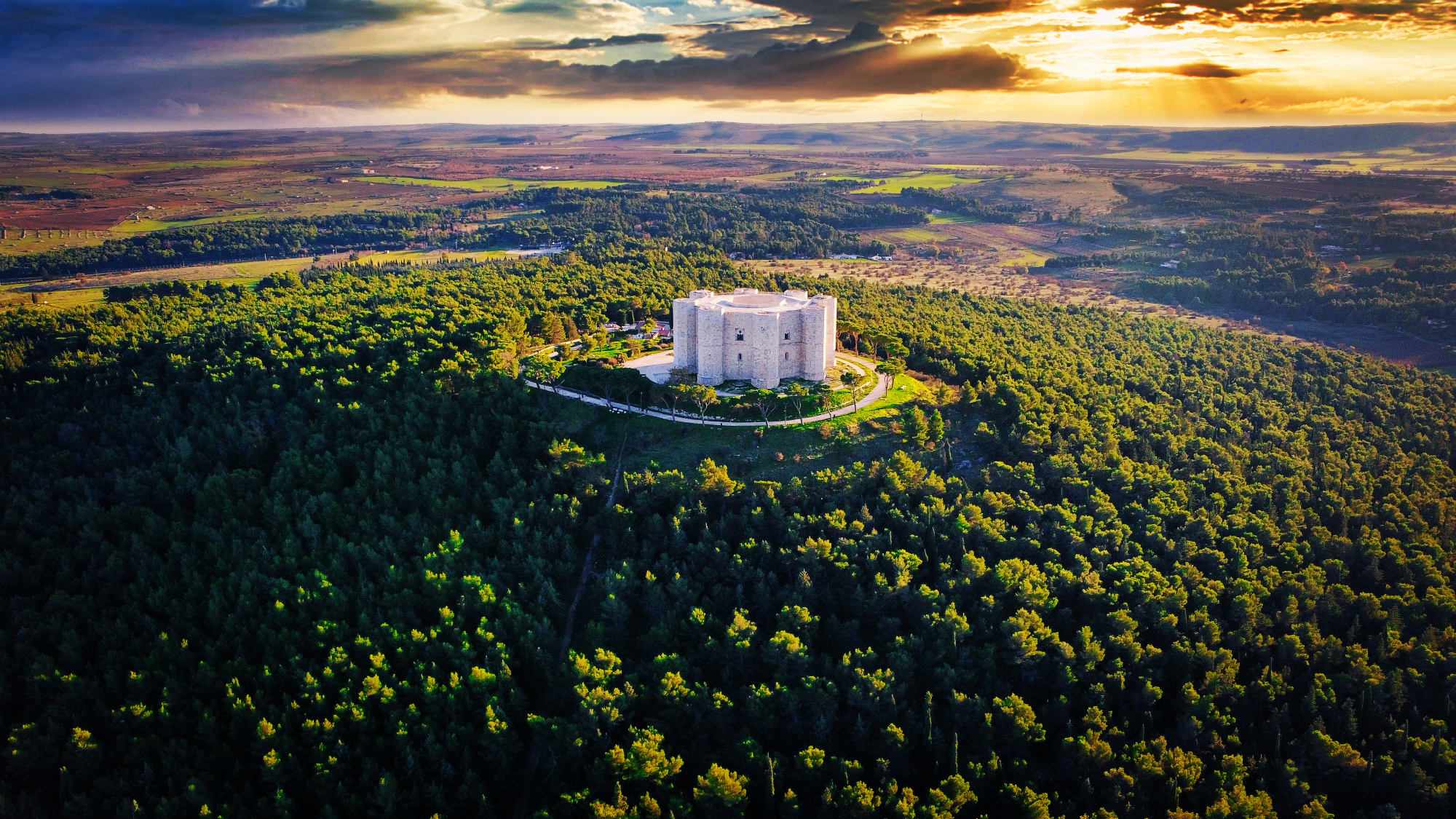Puglia's rich medieval heritage
Holy Roman Emperor Frederick II built 'the most flawless of all medieval European castles' in the southern Italian region

A free daily email with the biggest news stories of the day – and the best features from TheWeek.com
You are now subscribed
Your newsletter sign-up was successful
The southeastern province of Puglia "feels a world away from the more familiar landscapes of central Italy". Its historic buildings are whitewashed, for instance, a tendency perhaps dating from its centuries under Greek-Byzantine rule. But I went in search of a different aspect of its heritage, said William Dalrymple in the Financial Times – the extraordinary legacy of the Holy Roman Emperor Frederick II and his Arab subjects.
A brilliant, freethinking "polymath" known as "Stupor mundi" or Wonder of the World, Frederick ruled over a swathe of Europe in the early 13th century, stretching from Sicily to the Baltic. But it seems he was particularly keen on Puglia, and especially on the large home he built for himself here – the Castel del Monte, "the most flawless of all medieval European castles".
A "dazzling" white octagon with eight octagonal corner towers, the castle was most likely influenced by Islamic models and, in its "harmony of proportions", foreshadows Renaissance architecture by 200 years. Here, Frederick – "a model of inquisitive tolerance" regarded as the Antichrist by some clerics – surrounded himself with "men of genius" from the Arab, Greek and Jewish, as well as the Latin Catholic, communities, with whom he discussed science, mathematics and philosophy. Today, the castle is a Unesco World Heritage site, and its high, vaulted ceilings and "superb" marble fireplaces are well preserved.
The Week
Escape your echo chamber. Get the facts behind the news, plus analysis from multiple perspectives.

Sign up for The Week's Free Newsletters
From our morning news briefing to a weekly Good News Newsletter, get the best of The Week delivered directly to your inbox.
From our morning news briefing to a weekly Good News Newsletter, get the best of The Week delivered directly to your inbox.
To the north sits the town of Lucera, to which, in 1222, Frederick relocated all the Muslims who had remained in Sicily after the Normans drove out the island's Arab rulers in the 11th century. Fifty years after his death, they were expelled, but for decades before then, Lucera was a "functioning Islamic city", a sort of "Italian Granada". It is "exceptionally beautiful", as is nearby Troia. Arab craftsmanship can still be seen in both, from the carved wooden ceilings of Lucera to the "filigree latticework" of the rose window in Troia's glorious cathedral.
A free daily email with the biggest news stories of the day – and the best features from TheWeek.com
-
 5 blacked out cartoons about the Epstein file redactions
5 blacked out cartoons about the Epstein file redactionsCartoons Artists take on hidden identities, a censored presidential seal, and more
-
 How Democrats are turning DOJ lemons into partisan lemonade
How Democrats are turning DOJ lemons into partisan lemonadeTODAY’S BIG QUESTION As the Trump administration continues to try — and fail — at indicting its political enemies, Democratic lawmakers have begun seizing the moment for themselves
-
 ICE’s new targets post-Minnesota retreat
ICE’s new targets post-Minnesota retreatIn the Spotlight Several cities are reportedly on ICE’s list for immigration crackdowns
-
 Samurai: a ‘blockbuster’ display of Japan’s legendary warriors
Samurai: a ‘blockbuster’ display of Japan’s legendary warriorsThe Week Recommends British Museum show offers a ‘scintillating journey’ through ‘a world of gore, power and artistic beauty’
-
 BMW iX3: a ‘revolution’ for the German car brand
BMW iX3: a ‘revolution’ for the German car brandThe Week Recommends The electric SUV promises a ‘great balance between ride comfort and driving fun’
-
 Mail incoming: 9 well-made products to jazz up your letters and cards
Mail incoming: 9 well-made products to jazz up your letters and cardsThe Week Recommends Get the write stuff
-
 Arcadia: Tom Stoppard’s ‘masterpiece’ makes a ‘triumphant’ return
Arcadia: Tom Stoppard’s ‘masterpiece’ makes a ‘triumphant’ returnThe Week Recommends Carrie Cracknell’s revival at the Old Vic ‘grips like a thriller’
-
 My Father’s Shadow: a ‘magically nimble’ love letter to Lagos
My Father’s Shadow: a ‘magically nimble’ love letter to LagosThe Week Recommends Akinola Davies Jr’s touching and ‘tender’ tale of two brothers in 1990s Nigeria
-
 Send Help: Sam Raimi’s ‘compelling’ plane-crash survival thriller
Send Help: Sam Raimi’s ‘compelling’ plane-crash survival thrillerThe Week Recommends Rachel McAdams stars as an office worker who gets stranded on a desert island with her boss
-
 The 8 best superhero movies of all time
The 8 best superhero movies of all timethe week recommends A genre that now dominates studio filmmaking once struggled to get anyone to take it seriously
-
 Book reviews: ‘Hated by All the Right People: Tucker Carlson and the Unraveling of the Conservative Mind’ and ‘Football’
Book reviews: ‘Hated by All the Right People: Tucker Carlson and the Unraveling of the Conservative Mind’ and ‘Football’Feature A right-wing pundit’s transformations and a closer look at one of America’s favorite sports